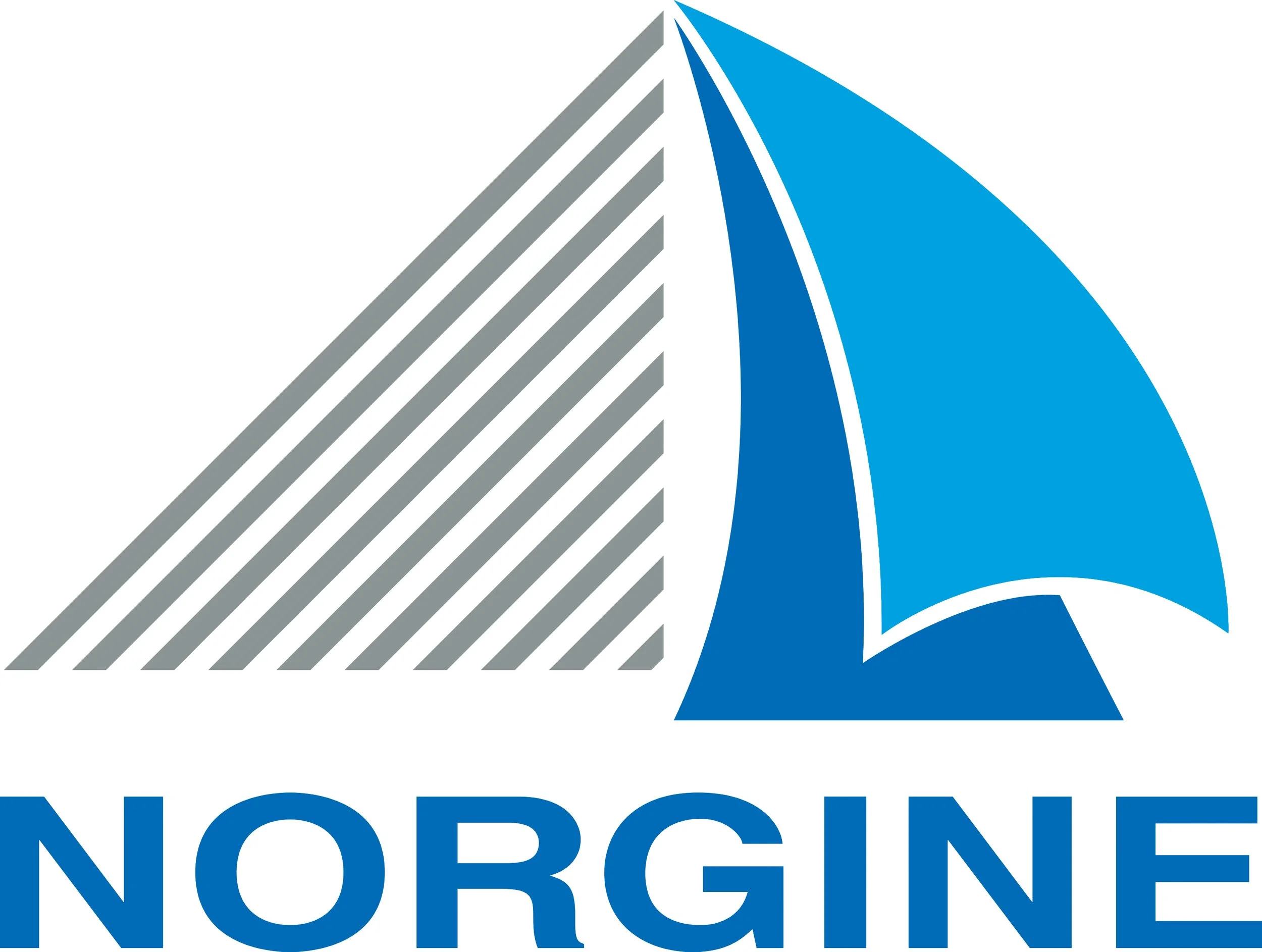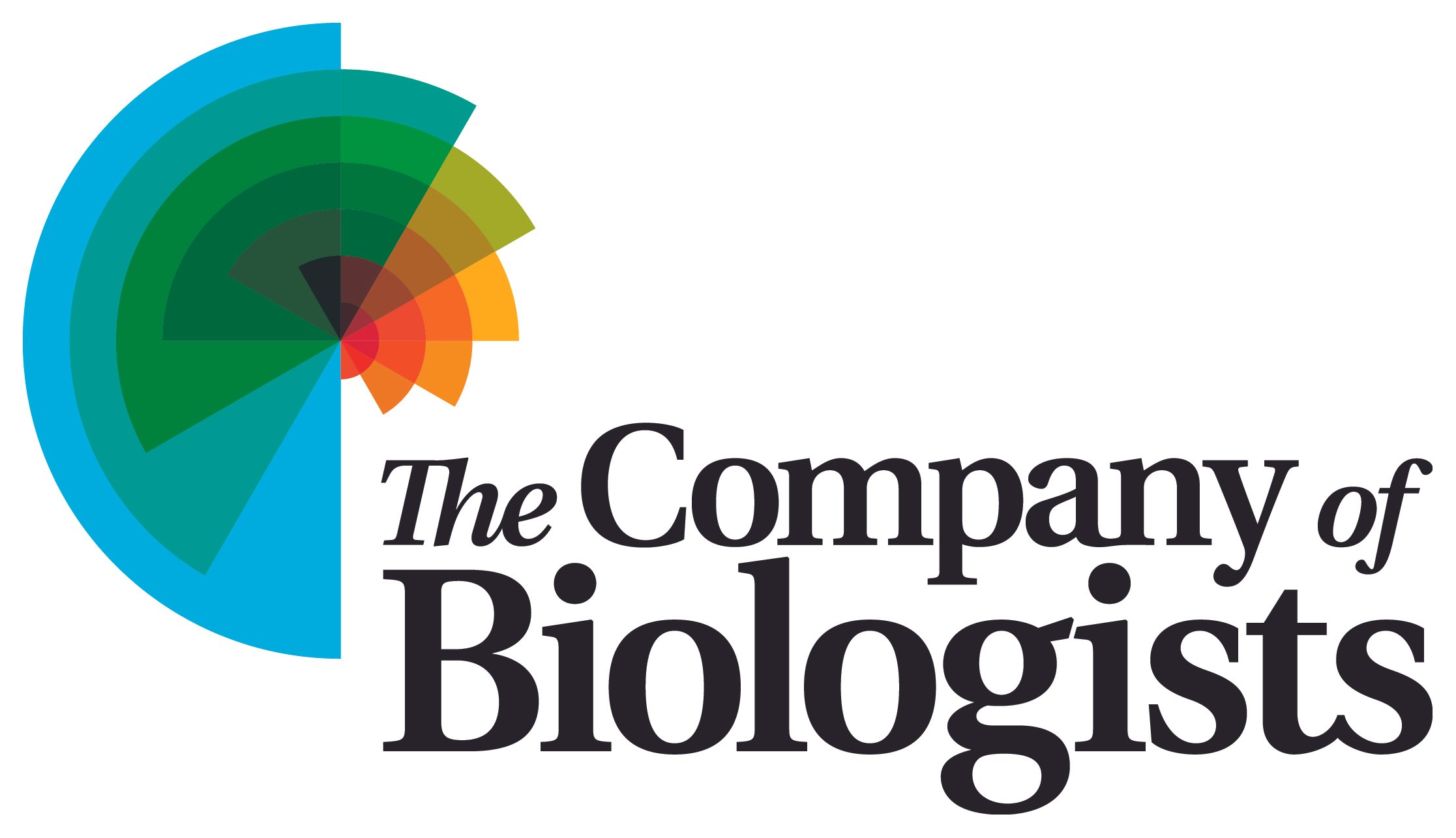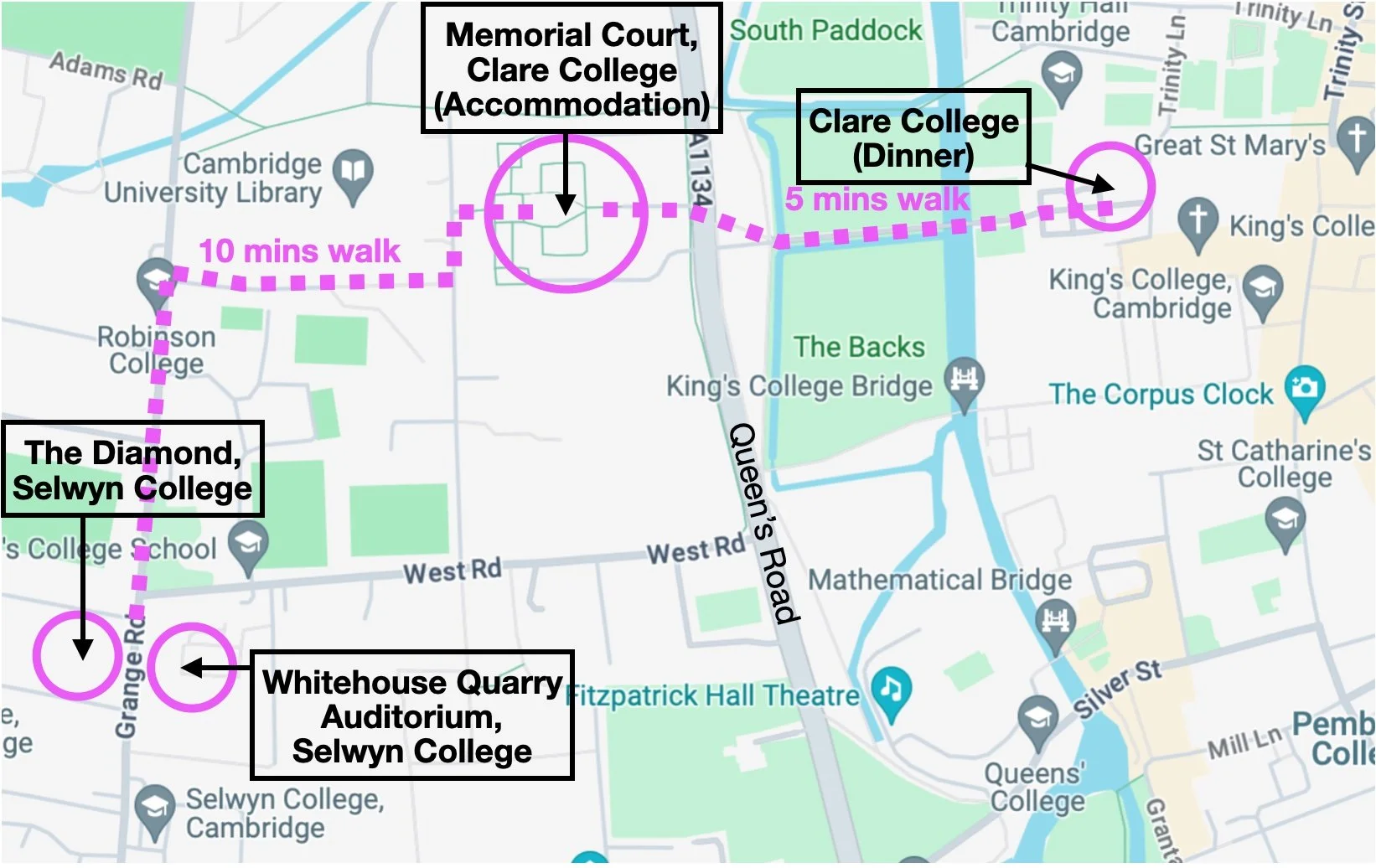We are delighted to announce that Neuroblastoma UK’s 6th Neuroblastoma Research Symposium will be held in Cambridge on 21st - 22nd March 2024 at Clare College and Selwyn College, University of Cambridge, UK.
The Symposium is presented by Neuroblastoma UK and co-hosted by Professors Anna Philpott and Suzanne Turner of the Cancer Research UK Cambridge Centre programme for Paediatric Cancer.
Neuroblastoma UK is hugely grateful for a very generous donation in support of this meeting from Neil and Julie Record
We thank our sponsors, all of whom have had no involvement in the organisation, planning or content of this meeting:
EUSA/Recordati have provided an educational grant.
Norgine have sponsored Session 2.
The Company of Biologists (https://www.biologists.com/) have made a meeting donation.
The Symposium is now full and registration is closed.
-
Flights: For flights from Europe, London Stansted is by far the most convenient, with good train (~45 mins) connections to Cambridge. London City, Heathrow and Gatwick Airports are 2+ hours away by train, London Luton an hour by coach.
Cambridge: From Cambridge train station, either take/share a taxi (less than £10) from the station forecourt to Memorial Court or Selwyn College, or take a bus into central Cambridge then a 10-15 minute walk.
Parking: There are no parking spaces available at the colleges. If you are driving, we suggest that you either choose the Park & Ride closest to your entry point into Cambridge, take the bus in and walk from the City Centre, or some free parking is available in the roads off Grange Road, namely Sylvester Road, Wilberforce Road and Adams Road, but parking is competitive and spaces are not guaranteed.
-
Accommodation is at Clare College’s Memorial Court accessible along Queen’s Road (A1134). Check in at the Porter’s Lodge there. Memorial Court is in between Selwyn College’s Quarry Whitehouse Auditorium, where the conference is being held (10 mins walk), and Clare College itself where Drinks and Dinner are being held on the Thursday evening (5 mins walk).
Some rooms *may* be available by lunch time on Thursday 21st March to check in, but most likely you will be asked to leave you luggage there, which will be in a secure room near the Porter’s Lodge. If you don’t have time to arrive via Memorial Court on your way to the Symposium, some luggage can be left in the ante-chamber to Selwyn College’s Quarry Whitehouse Auditorium for the Thursday afternoon. All rooms will be available at 6pm after the Thursday talks. Please check in at the Porter’s Lodge in Memorial Court.
Accommodation includes breakfast on Friday morning, which is available between 7:30am and 9:00am at the Buttery in the Old Court of Clare College itself, 5 mins walk from Memorial Court through the gardens of the College. The Porter will be able to give directions upon check in.
After breakfast, you will need to check out, leave your keys, and leave your luggage in the luggage store near the Porter’s Lodge for the day. Since 100 delegates will need to do this, please allow enough time to get to Session 3 on Friday morning which starts at 8:50am.
Some refreshments will be available in The Diamond at Selwyn College from 8:15am on the Friday morning before talks start at 8:45am, with access to Posters, but we are expecting delegates with accommodation to take advantage of breakfast in Clare College.
REGISTRATION AT SELWYN COLLEGE
Please register at the Quarry Whitehouse Auditorium, the conference lecture theatre, when you arrive at Selwyn College to collect a lanyard and booklet. Lunch will be available between midday and 1pm just across Grange Road in The Diamond, where posters are to be set up.
Free Selwyn College Wifi will be available throughout.
DINNER & DRINKS
Drinks will be held in Clare College itself from 7pm. From Memorial Court walk directly across the main road through Clare College gardens (The Avenue) for drinks at 7pm, followed by dinner in the Great Hall at 7:30pm. If you have time to kill before Drinks, try one of the following pubs nearby: The Granta, The Mill or The Eagle.
SPEAKERS
Please make yourself known to AV in the Quarry Whitehouse Auditorium in good time for the start of your session, to ensure that your slides work. AV request that you load a copy of your talk onto their PC laptop. Plugging in Mac laptops will also probably work, but please check this with AV in good time, and be prepared to transfer a copy of your talk to the AV presentation laptop.
POSTERS
Poster setup: Please arrive in time to set up your posters between midday and 1pm in The Diamond, across the road from the Quarry Whitehouse Auditorium at Selwyn College, Grange Road. We will provide A0 PORTRAIT poster boards and Velcro for attachment. Posters can be taken down after the last talk at 5pm Friday.
Six poster prizes of £150 will be awarded by a panel of experts at the end of the penultimate Session on the Friday.
Please direct any questions about the Symposium here.
Programme
Thursday 21st March
-
-
Introduction - Neuroblastoma UK and CRUK Cambridge Centre
-
Sponsored by Cancer Research UK Cambridge Centre programme for Paediatric Cancer
Chair: Frank Speleman
13:10–13:40 Matthias Fischer, Cologne: Genetic alterations as molecular targets for novel treatment strategies in neuroblastoma
13:40–14:10 Lyn Jones, Harvard: Design and development of ALK targeted degraders
14:10–14:40 Alessio Ciulli, Dundee: Targeted protein degradation: how PROTACs and molecular glues work
14:40–14:55 Discussion: What will be the role of protein degraders in neuroblastoma?
-
-
Sponsored by Norgine
Chair: Karen Liu, KCL
16:00 – 16:30 Rogier Versteeg, Berlin: Plasticity upside-down
16:30 – 16:45 Alejandra Bruna, ICR: Investigating adaptive phenotypic plasticity as an early cancer evolutionary driver in paediatric solid cancers for improved treatment strategies
16:45 – 17:00 Cécile Thirant, Curie: Molecular factors controlling neuroblastoma tumor cell plasticity between noradrenergic and mesenchymal identities
17:00 – 17:30 Anna Philpott, Cambridge: Differentiation therapy in neuroblastoma; a developmental biologist’s approach
17:30 – 17:45 Ingrid Saldana-Guerrero, Sheffield: A human neural crest model reveals the developmental impact of neuroblastoma-associated chromosomal aberrations
17:45 – 18:00 Discussion: What are the priorities in understanding developmental biology for new therapeutics?
-
-
Friday 22nd March
-
Item description
-
Chair: Juliet Gray, Southampton
08:45 –09:15 Anne Rios, Utrecht: Organoid human cancer immunity models in motion
09:15 – 09:45 Ali Roghanian, Southampton: Next generation humanised mouse models in immuno-oncology R&D
09:45 – 10:15 Evon Poon, ICR: Immunocompetent and clinically-relevant models for preclinical evaluation of new agent
10:15 – 10:30 Discussion: What is the best model for Preclinical Evaluation of Immunotherapies
-
-
Chair: Frank Westermann, Heidelberg
11:00 – 11:30 Frank Speleman, Ghent: Replicative stress in neuroblastoma: an epigenetic perspective
11:30 – 11:45 Charlotte Butterworth, Curie: Study of spatial and temporal epigenetic heterogeneity in neuroblastoma suggests role of H3K27me3-mediated repression
11:45 – 12:15 Zoë Walters, Southampton: Evaluating the efficacy of EZH2 inhibitors in combination with isotretinoin for the treatment of high-risk neuroblastomas
12:15 – 12:30 Nina Weichert-Leahey, Harvard: Inhibition of the histone acetyltransferases KAT6A/B synergizes with retinoic acid in neuroblastoma
12:30 – 12:45 Discussion: How can we harness epigenetic control of neuroblastoma for therapy?
-
-
Chair: Karin Straathof, UCL
13:30 – 14:00 Claudia Rössig, Münster: GD2-specific CAR T cells: Combination strategies for enhanced potency
14:00 – 14:30 Sabine Taschner-Mandl, Vienna: The role of tumor cell - microenvironment communities in the bone marrow metastastatic niche
14:30 – 14:45 Discussion: How best to overcome the TME to optimise CAR-T cells?
-
-
-
Chair: Gudrun Schleiermacher, Paris
15:30 – 16:00 Perla Pucci, Cambridge: Collateral sensitivity to combination therapies in ALK aberrant neuroblastoma
16:00 – 16:30 Ruth Palmer, Gothenburg: Understanding ALK/ATR combination therapy in high-risk neuroblastoma - can cures in mice be translated to the clinic?
16:30 – 16:45 Peter Merseburger (Ghent/Gothenburg): A spatial transcriptomic exploration of the neuroblastoma TME in response to ATR inhibition
16:45 – 17:00 Discussion: Where to now for ALK? Which combinations? Is ALK directed therapy better than chemoimmunotherapy?
-





